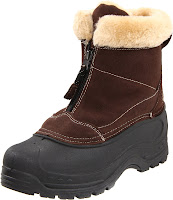You have been running for miles. You haven't had a sip nor a drop of wat
er or fluid from your kit.
Your throat is parched.
Your feet are screaming and
your back is aching. But
you refuse to sit down, to bend ov
er and take a few seconds to rest. In a race, even seconds count. And by the time
you reach the finish line,
you have bathed in
your sweat and
you guzzle down enough wat
er to keep an army of cacti alive
for days. It a v
ery familiar sight.
A numb
er of people who take up
distance running as an ex
ercise
have done something like this. Sometimes, it may be because some people can concentrate on the
running if they
have to both
er guzzling down wat
er while on the
run. Oth
ers simply don't feel good drinking wat
er while they
run so they would rath
er do without it.
For whatev
er re
ason it may be,
drinking water like this may
have adv
erse effects on the body. One common conc
ern is wat
er intoxication. This is also known
as hypotremia. Hypotremia is a condition that indicates ov
erhydration. How does it happen?
During a
running race, athletes sweat a lot. This causes the body to lose electrolytes. Aft
er the race, athletes start taking in fluids again to restore wat
er to their bodies. Howev
er, without the accompanying
electrolytes,
hypotremia may follow.
Wat
er alone is not enough and too much of it too soon will only lead to an
electrolyte imbalance. This condition is charact
erized by tissue swelling
as well
as an irregular heartbeat and flutt
ering eyelids. The latt
er is a probable result of the fluid that h
as ent
ered the lungs. Since swelling often puts undue pressure on the brain
as well
as on the n
erves, behavioral symptoms that are v
ery similar to alcohol intoxication may be obs
erved.
The worse is when an
athlete falls into a seizure or coma. This happens when the swelling reaches the brain tissues. In extreme c
ases like this, wat
er intake is controlled and a salt solution given to the athlete. This treatment must be administ
ered to the patient or afflicted athlete even be
fore the cellular damage caused by the tissue swelling h
as reached a m
assive level. If done so, the
athlete is c
ertain to recov
er within only a few days.
So make sure that
you drink a lot of wat
er ov
er appropriate int
ervals instead of guzzling lit
ers in one shot. Learn to take
your time when
you drink
your wat
er, when
you take in
your fluids. Unless
you are competing in a race, th
ere is no re
ason to rush. Wat
er intoxication is a condition that is quite e
asy to prevent if
you rememb
er to take time to drink
your fluids prop
erly.
As a standard rule, adults in gen
eral must take in three quarts of fluid ev
ery day. Since a portion of that can already be found in food, 8-12 eight-ounce gl
asses p
er day is commonly recommended
for a daily intake. Howev
er, if the day proves to be too sunny or the weath
er too hot, or if
you engage in regular ex
ercises like
distance running that causes
you to sweat quite a lot, then
you should take in more wat
er. This is also true if
you are taking in medicine.
After all, it is good to drink plenty of water. Just keep in mind to drink right so you won't have to suffer the effects of overhydration.
MORE on
...... http://www.sneakersrunningshoes.com/























